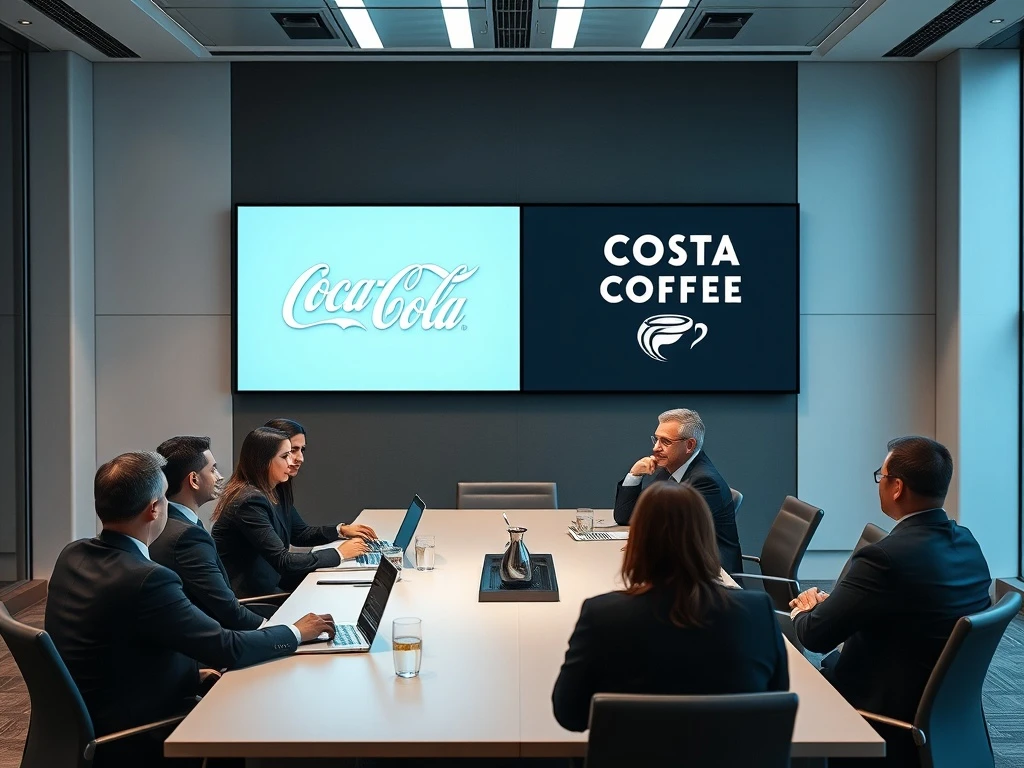Coca-Cola’s surprising decision to sell Costa Coffee marks a dramatic reversal in its global beverage strategy. The company initially acquired the UK-based coffee chain to directly challenge Starbucks’ dominance. However, market forces and strategic reassessments have prompted this significant divestment.
Coca-Cola Costa Coffee Acquisition Background
Coca-Cola purchased Costa Coffee for $5.1 billion in 2019. The acquisition represented a major strategic move into the hot beverages sector. Company executives envisioned challenging Starbucks’ global coffee supremacy. This ambitious plan aimed to leverage Coca-Cola’s massive distribution network. However, market dynamics shifted dramatically during the implementation phase.
Market Challenges Faced
Several factors complicated Coca-Cola’s coffee market ambitions. The pandemic severely impacted physical retail locations worldwide. Changing consumer preferences accelerated the shift toward premium home brewing. Additionally, Starbucks maintained strong brand loyalty among coffee consumers. These challenges forced Coca-Cola to reconsider its entire coffee strategy.
Strategic Reasons for Sale
Multiple strategic considerations drove the Costa Coffee divestment decision. Coca-Cola prioritizes capital allocation toward higher-growth segments. The company focuses more intensely on its core beverage portfolio. Furthermore, management recognizes the capital intensity of retail operations. This move allows refocusing on higher-margin business segments.
Industry Impact Analysis
The Costa Coffee sale signals broader industry trends. Beverage giants increasingly concentrate on their core competencies. Market consolidation continues reshaping the global beverage landscape. This transaction may inspire similar strategic reassessments across the industry. Competitors will closely watch this development’s market implications.
Future Strategic Direction
Coca-Cola now reallocates resources toward emerging beverage categories. The company emphasizes ready-to-drink products and digital transformation. Management maintains commitment to strategic portfolio optimization. This decision reflects ongoing adaptation to evolving consumer preferences. The company continues pursuing growth through innovation and partnerships.
Frequently Asked Questions
Why did Coca-Cola acquire Costa Coffee initially?
Coca-Cola sought to enter the rapidly growing coffee market and challenge Starbucks’ dominance through Costa’s established brand presence and retail network.
What factors led to the decision to sell?
Changing market conditions, pandemic impacts on retail, and strategic refocusing on core beverage businesses influenced the divestment decision.
How does this affect Coca-Cola’s market position?
The sale allows better capital allocation toward higher-growth areas while maintaining focus on the company’s traditional beverage strengths.
What does this mean for the coffee industry?
This move indicates continued market consolidation and strategic realignment among major beverage companies regarding retail coffee operations.
Will Coca-Cola completely exit the coffee business?
While exiting retail coffee, Coca-Cola may continue coffee-related products through other formats like ready-to-drink offerings and partnerships.
How might this decision impact competitors?
Competitors may reassess their own strategies while potentially seeing reduced direct competition in certain market segments.




















